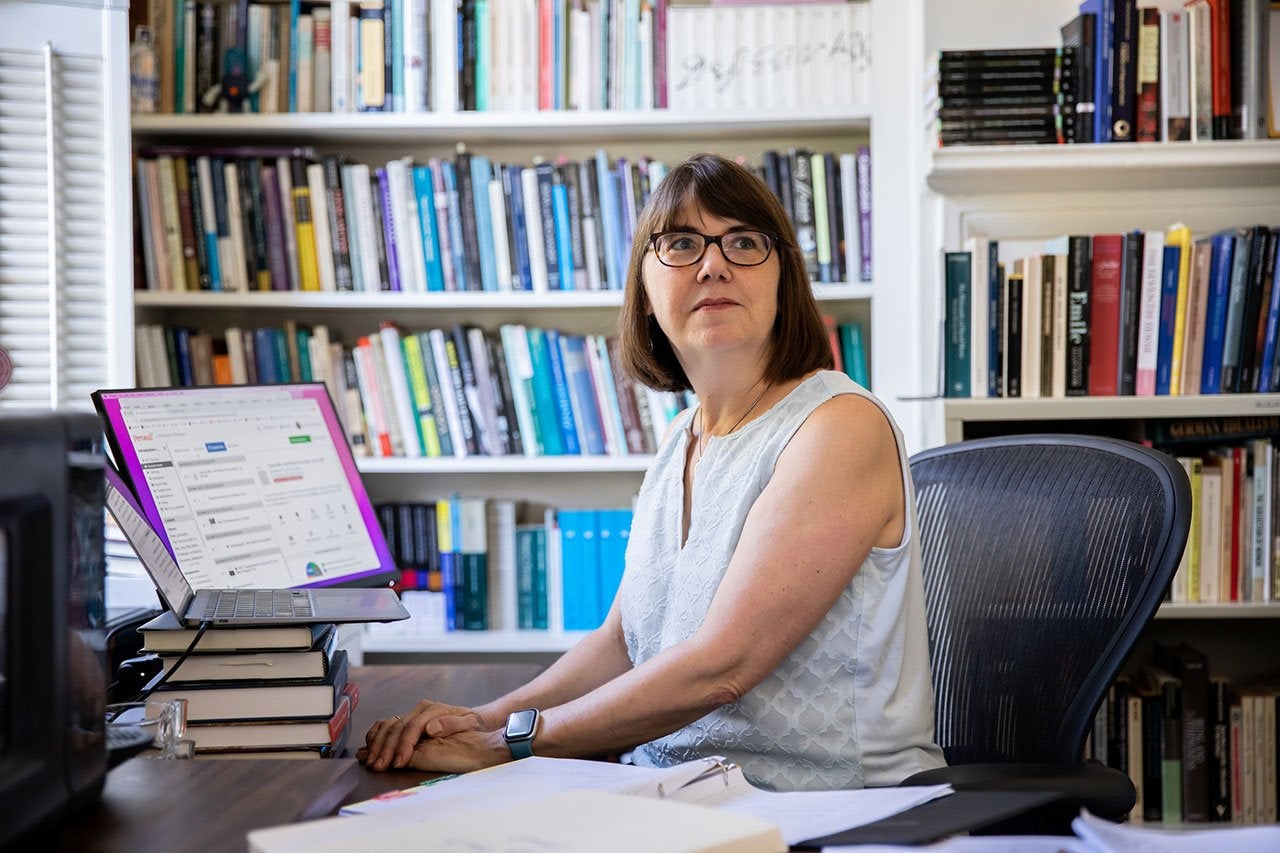When Deborah Boyle first focused in on early modern philosophy as her area of academic interest, she never expected she’d be changing the way the history of philosophy is told.
After all, it’s hard to be a pioneer in a subject that’s been studied and written about extensively for nearly 400 years.
But when the philosophy professor learned about Margaret Cavendish – a poet, playwright, science fiction writer and, ultimately, philosopher in the 1660s – she knew she’d found something new and important.
“At the time, the only woman in the history of philosophy that I’d even heard of was Princess Elizabeth of Bohemia,” says Boyle, who started digging into Cavendish’s writing to understand the philosophy she was presenting. “It was fascinating – especially because there was so little research on her philosophy out there. Philosophers had done very little scholarly work on Cavendish or other women philosophers from the 17th and 18th centuries. That was something else that was exciting to me.”
It was something that would be challenging for her, too.
“It’s hard getting into something that hasn’t been written about before,” she says. “I found that by looking at different contexts, you get a much broader, more comprehensive and accurate view of the history of philosophy. There were women philosophers with really interesting views throughout the history of philosophy, and they should have been studied all along. I’m interested in how the history of early modern philosophy got written the way it did – leaving out all but six guys and Kant. I wanted to correct the historical picture.”
And so, she began to rewrite history. Quite literally.
Boyle has edited modern editions of works by Cavendish and Mary Shepherd and is now the series editor for Hackett Publishing’s new book series on women in early modern and modern philosophy. Her Hackett book of Cavendish’s Philosophical Letters was the first modern edition since its original publication in 1664.
“Having women represented more in our history of philosophy and having books by them and about them for people to access easily is something I feel strongly about,” she says. “My priority is always getting the word out that women have been doing philosophy and continue to do philosophy – and it’s out there now.”
With five books and almost two dozen articles and book chapters on women philosophers, Boyle has not just put the untold history of philosophy out there – she has earned a reputation as a foremost scholar on women philosophers in early modern philosophy. Her contributions to the history of philosophy have started new conversations among philosophy scholars.
“Bringing this into focus for other people, and having them take it and run with it, is something I’m really proud of,” says Boyle, who is the first female editor of the Journal of the History of Philosophy. “I want students to know that if you look beyond the traditional philosophical genres and include novels, plays and poetry, you’ll see that there were many more people doing philosophy than the seven main guys that are taught about. And many of them were innovative women who were making history in philosophy in their time.”
Much like Boyle is doing in hers.
Featured image by Catie Cleveland




